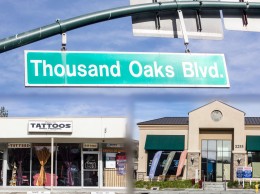Thousand Oaks-based energy crop maker Ceres has drastically lowered expectations for its initial public offering and delayed it for a week, according to regulatory filings and investment banking sources.
The company was set to raise as much as $132 million on the Nasdaq when shares hit the markets under the name CERE on Feb. 9. The price was expected to be $21 to $23 per share.
But the IPO did not happen. In a regulatory filing the day before the planned IPO, the company said it was lowering its expected opening price to between $16 and $17 – a decline of nearly 30 percent. Investment banking sources told the Business Times that the company has delayed its offering for a week, without giving an explanation.
The investment banking source said “it would be fair to assume that, after cutting its price … [Ceres’] new issue is encountering unexpectedly strong headwinds.”
A Ceres spokesman did not return a request for comment.
The offering’s underwriters are Goldman, Sachs & Co., Barclays Capital, Piper Jaffray, Raymond James and Simmons & Co. International. The scaled-down deal would raise about $85 million.
The IPO shares would constitute about 20 percent of Ceres common stock, signaling that the deal is primarily a liquidity vehicle for Ceres’ current investors. Major owners are private equity firms Artal Group, a Luxembourg firm that owns about 15 percent of Ceres, and Warburg Pincus, which owns about 12 percent of the company. Monsanto began a $137 million partnership with Ceres in 2002, resulting in 5 percent ownership.
Founded in 1996, Ceres has developed several crops — sorghum, switchgrass and misconstrues are among the early contenders — that can be used to produce biofuels. Many of the crops are drought resistant and can be grown in areas that wouldn’t support the cultivation of food. The company has 98 employees.






 Print
Print Email
Email

















